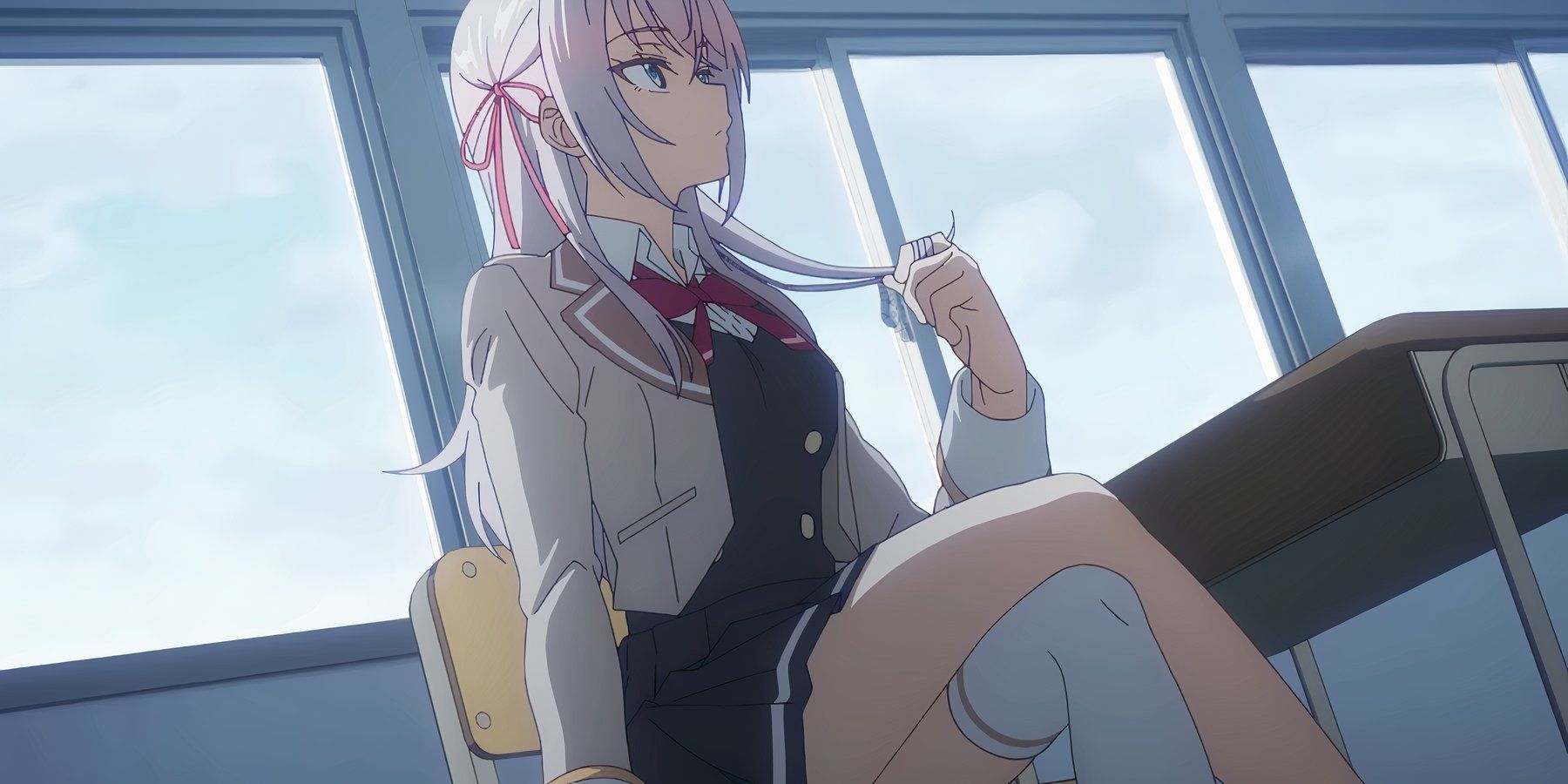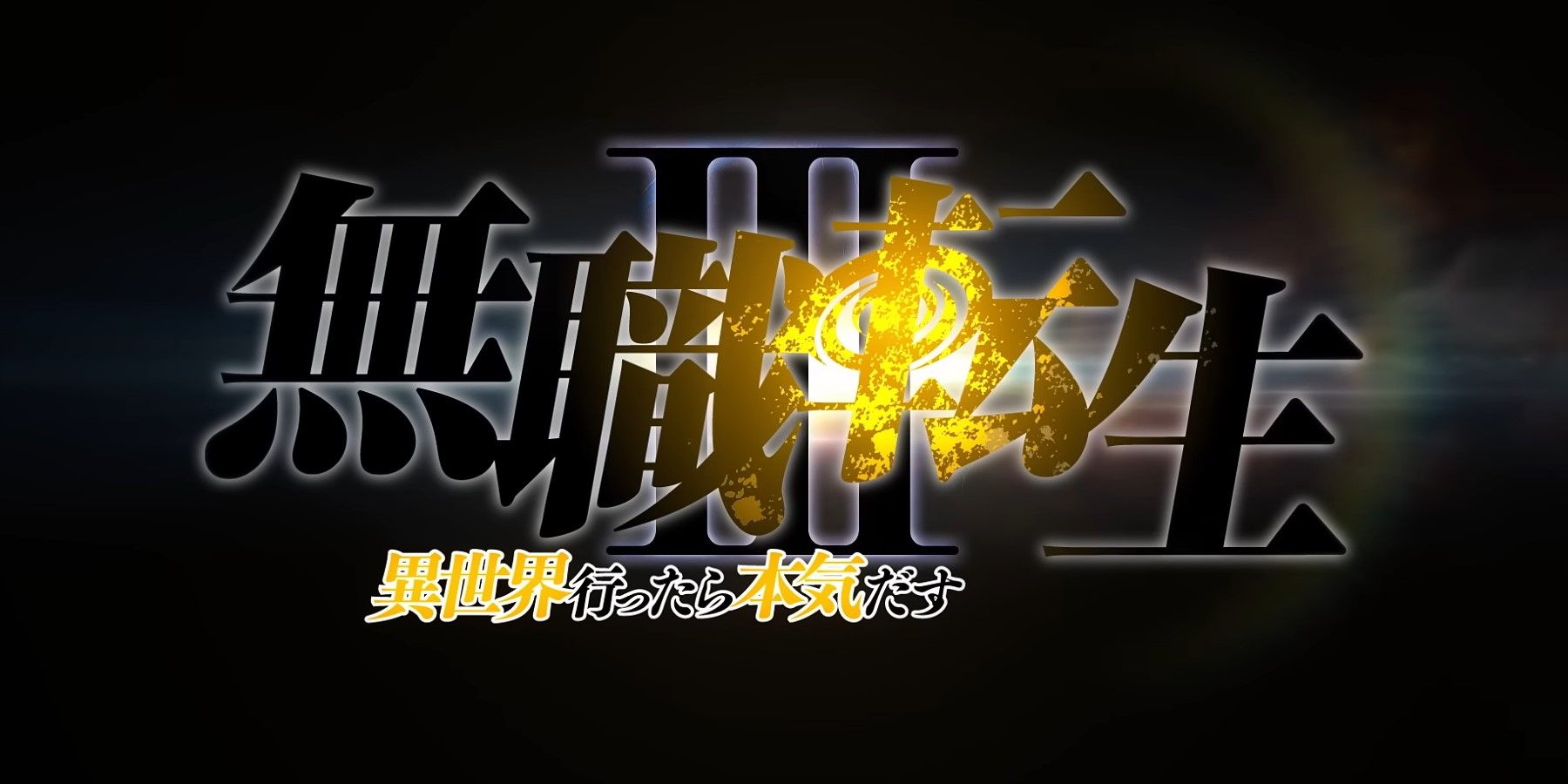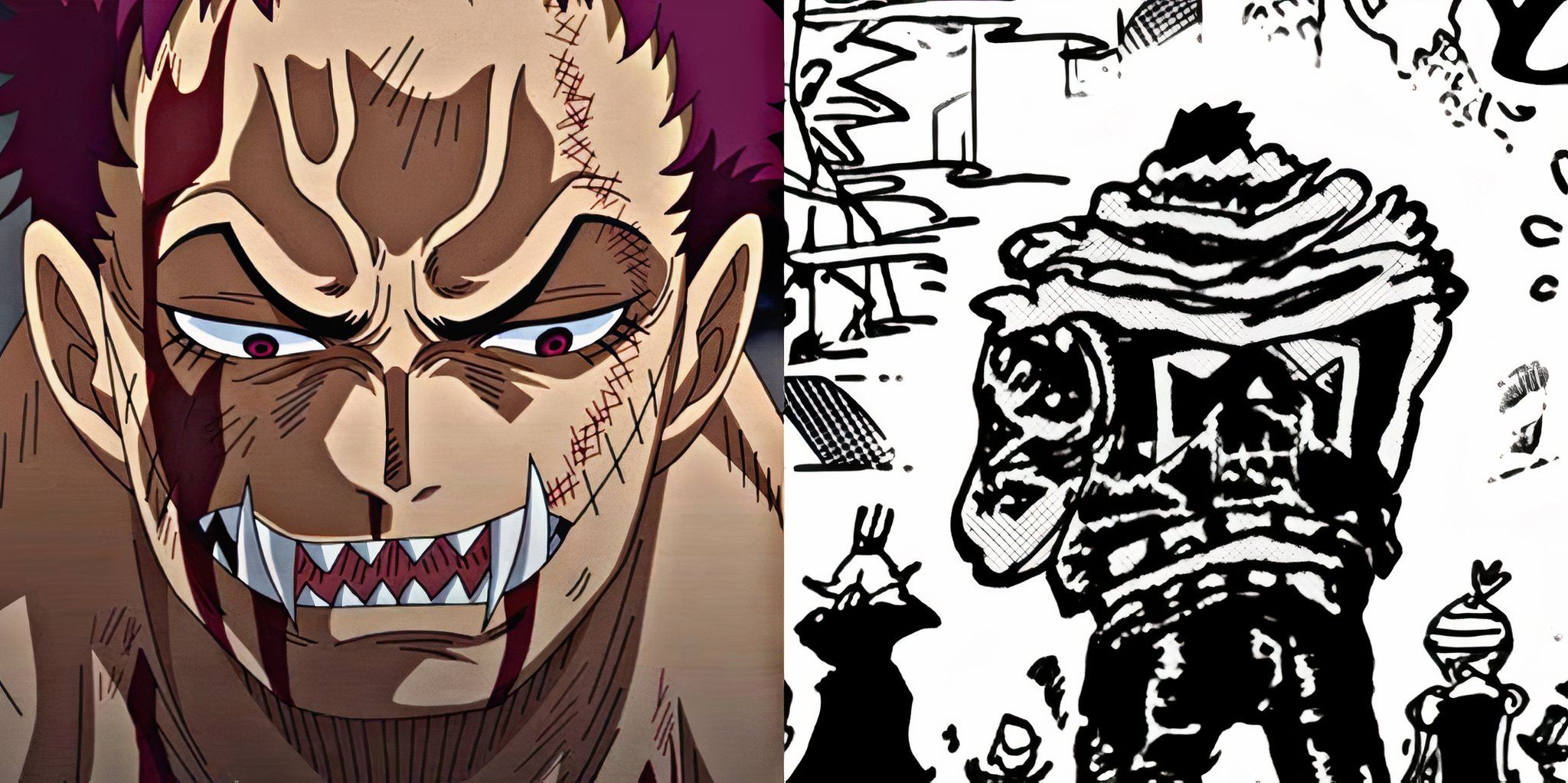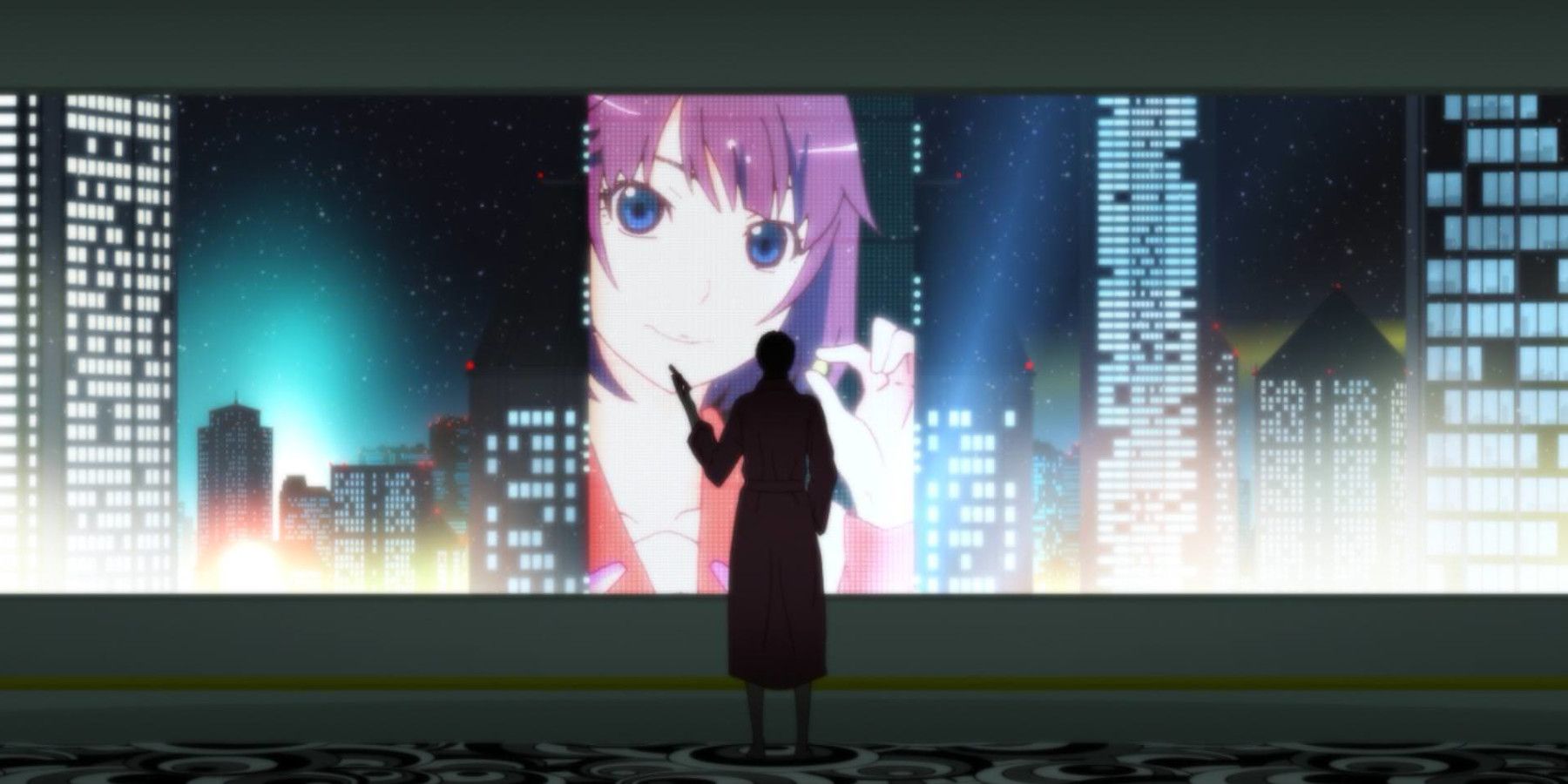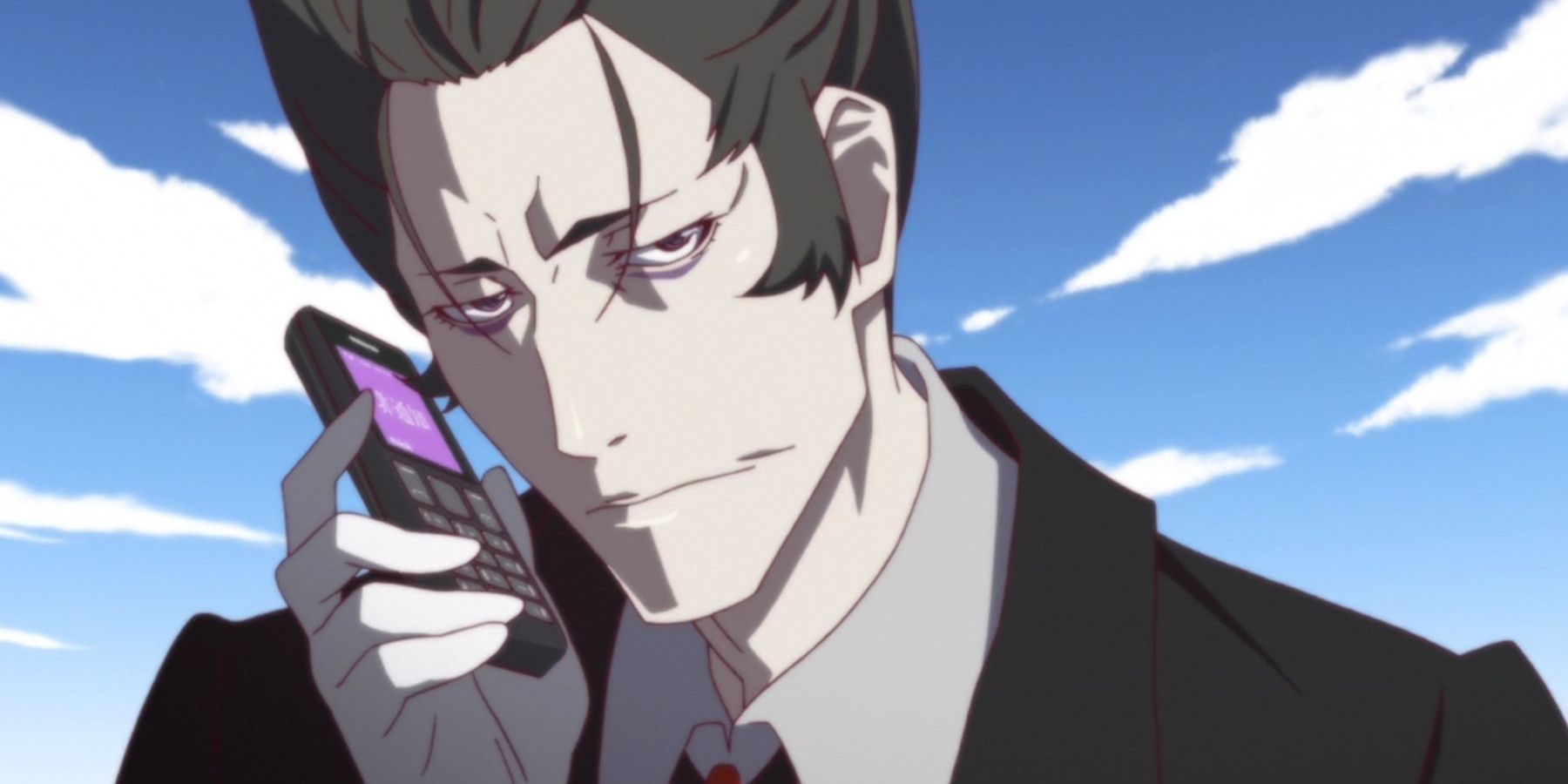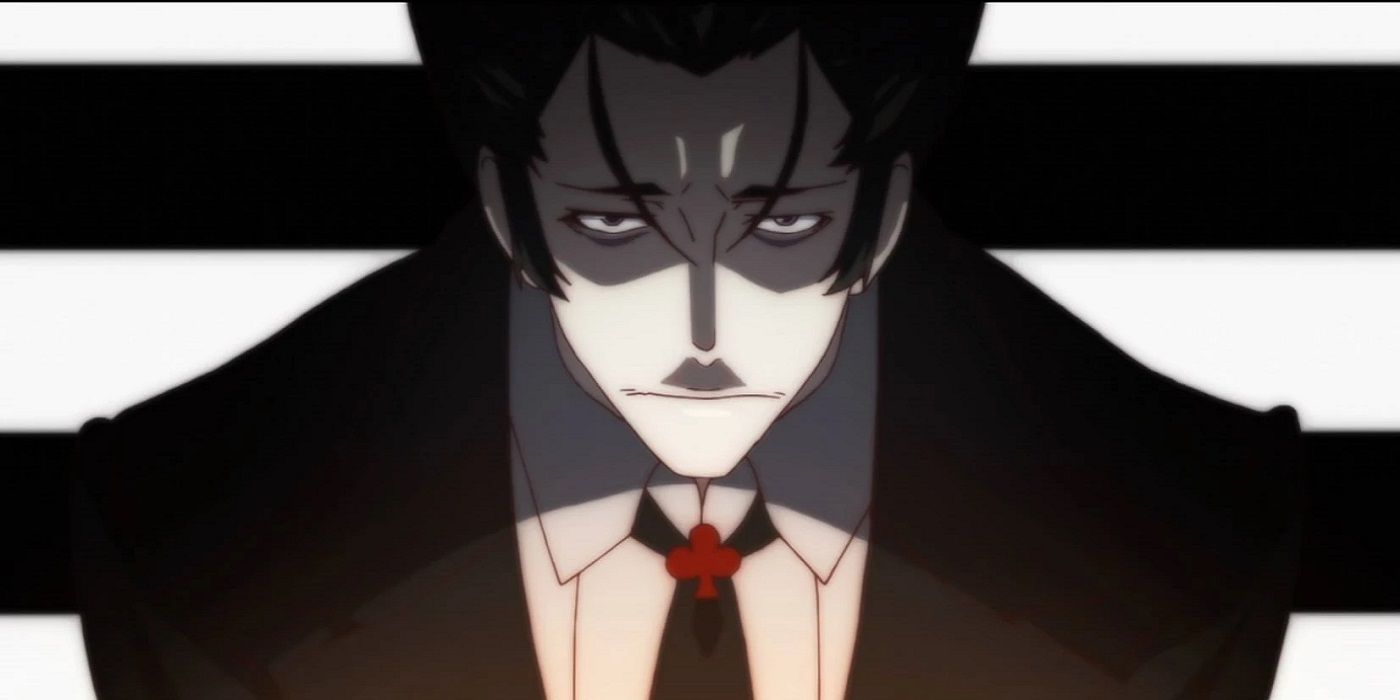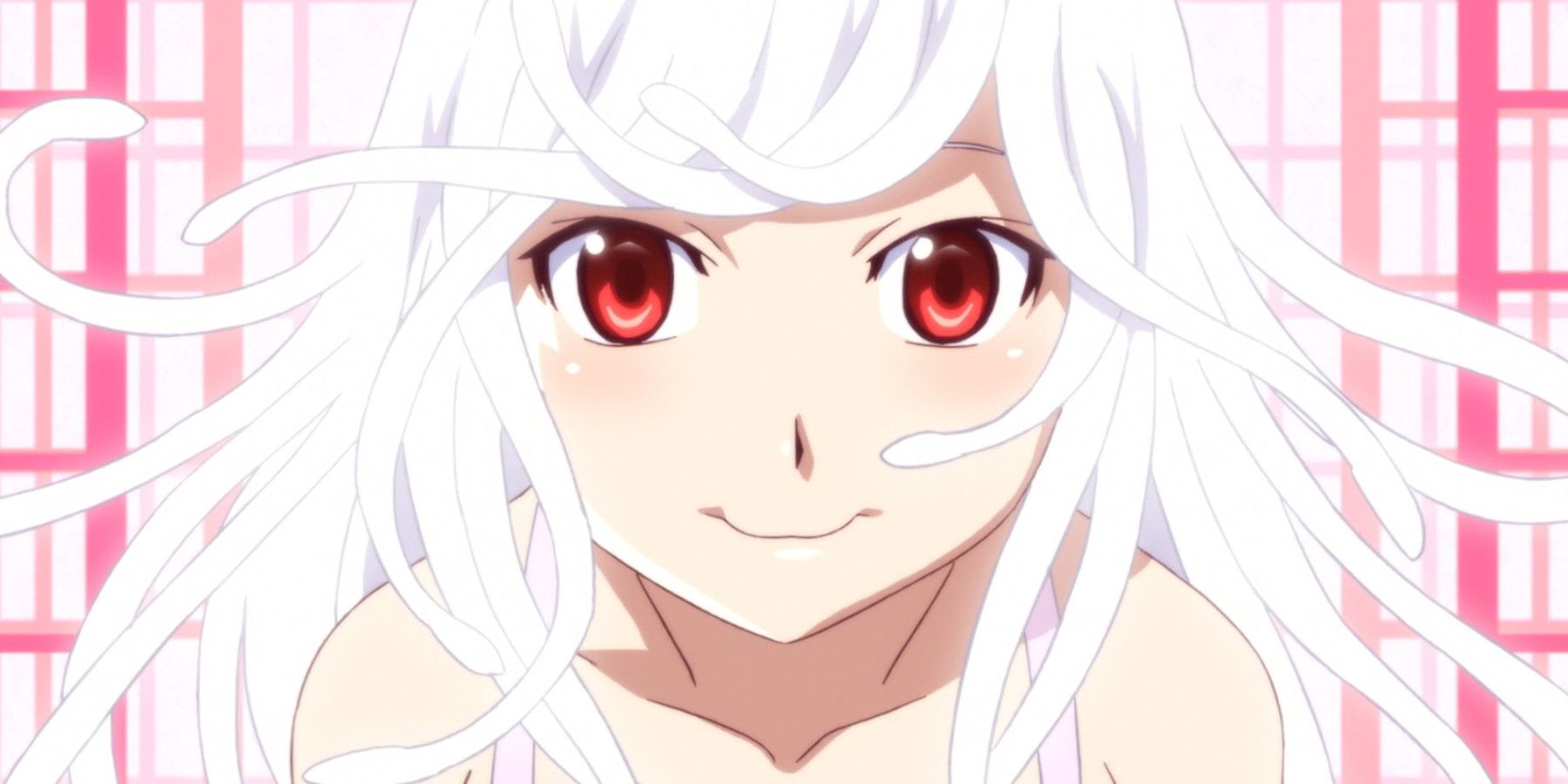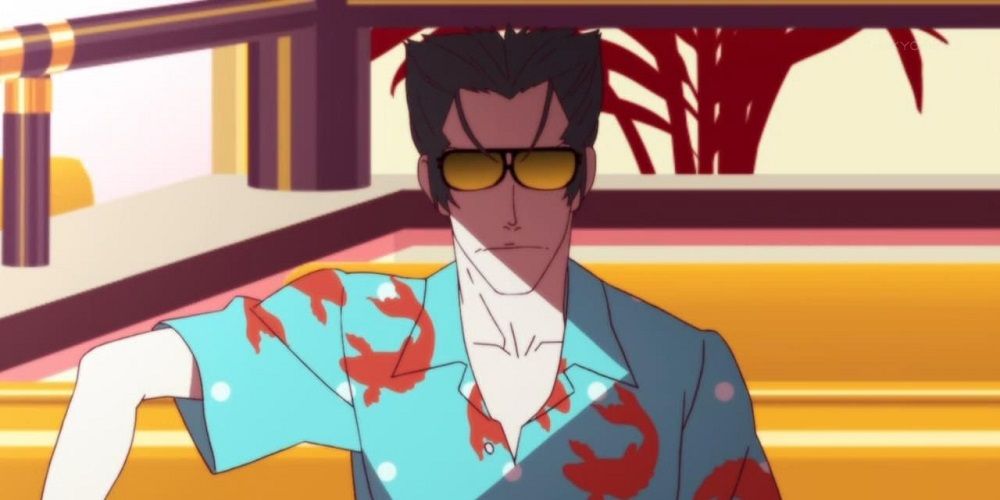The following contains spoilers for Nisemonogatari and Monogatari Second Season Streaming on Crunchyroll.
There are plenty of great villains in anime, and every once in a while some of them undergo quite a bit of punishment or soul-searching before they begin to undergo a redemption arc. However, in the last six episodes of Monogatari Second Season, Kaiki Deishu reveals themselves to be far more than the greedy con artist they were introduced as. In Nisemonogatari, Kaiki appeared as the central antagonist who was responsible for Senjougahara's past trauma, who was now conning middle school students, including Araragi's sisters. When Araragi and Senjougahara confronted him, however, there was no fight, and barely even an argument, but rather Kaiki agreed to leave and cease his con.
Central to the core idea of Nisemonogatari (Nisemono = fake), Kaiki was a fake antagonist peddling fake superstition in order to extort money. The fact that he was stealing from children is just the icing on the cake. His entire presentation conveys an almost vampiric quality, but it's all just a facade to hide a considerably lame person. And yet, in Second Season, when Araragi and Shinobu are at their lowest point and Senjougahara makes a deal to grant them six months before they are killed, Senjougahara calls Kaiki. She asks the conman that wronged her to save her life, as well as her boyfriend Araragi.
Hitagi End
Not only does Kaiki become the protagonist of an arc, but he also becomes the protagonist of the final arc of the second season. Senjougahara calls him to ask him to deceive Sengoku Nadeko, Araragi's friend who became possessed by an apparition and turned into a god. At first, Kaiki has no intention of helping and only agrees to hear the proposal knowing she'd likely kill him if he didn't hear her out.
The storytelling decision alone is bold, but the reason it works so well is because of the relationship between Kaiki and Senjougahara, complicated as it is. Senjougahara's family was torn apart and Kaiki's con was to blame, but before he was revealed to be a con artist, she saw him as a "prince" who could save him.
She once had a childish crush on this older man who was supposed to save her and became enraged by his betrayal, only able to let go once she met Araragi and fell in love with him. Now, as her boyfriend's life and her own are at stake, she turns to the one person she knows can help, as painful as it might be.
What Is A Fake Villain?
The first of the six-part "Hitagi End" arc sees Kaiki hearing Senjougahara's proposal and making the decision of whether to take the job. And the very fact that Kaiki not only considers it but has to argue with himself to find a justification to take it is telling. Because while Kaiki is not a supervillain like his debut paints him, he's also not so simple as to be a low-level scumbag.
Money is everything to him and a key factor in his willingness to do anything, marking him as greedy, and he rejects the idea that he owes Senjougahara or Araragi anything. However, he isn't without a line that he won't cross. When the matter of payment for the task is mulled over and Senjougahara offers her own body, he throws his drink at her.
Such a thing is insulting to Kaiki, not only to imply that he would stoop to such a level or that she can offer him what money cannot but her demeaning herself in such a way seems ridiculous. And yet, following that exact moment, Kaiki secludes himself and goes through every possible justification to help her until he finds one that suits him as if just saying yes was so difficult.
Kaiki was a fake villain, but does that mean he is a bad villain or that he is the opposite of one? His lifestyle, his worldview, and his sense of accountability are all flawed, yet there is a part of him that is compelled to help Senjougahara. This arc continually attacks the rules by which Kaiki lives and doesn't necessarily discredit his views but explores how he can be good in his own way.
A Con Artist And A God Walk Into A Shrine
In Monogatari lore, Kaiki was a student alongside several of the occult experts in the series whom Araragi meets. While he's aware of the supernatural, he himself claims not to believe in it, making his opponent within the arc perfect. Sengoku Nadeko is a literal god who he must deceive as he would any human.
Nadeko herself is one of the more complicated Monogatari girls, someone who at first seems one-note and maybe shallow compared to other characters. It's only until the Nadeko Medusa arc, when she undergoes her transformation, that she begins to truly deepen as a character. Her obsession with Araragi is only part of her problem, as she's actively closed herself off from the world.
As Kaiki spends the next several episodes learning about what happened leading to Nadeko's transformation and conversing with other characters, he visits Nadeko and attempts to get close to her. He spends a month planting seeds in his conversations with her, so he can deceive her into not wanting to kill Araragi... and it fails.
"I Love Money"
His deception, a fairly weak one at that, completely backfires and Nadeko sees through it. For once, Kaiki is at a disadvantage and the final confrontation is an actual confrontation. Kaiki's deception failed because he had miscalculated how deeply Nadeko distrusted others and how much she closed herself off.
Up to this point, Kaiki was a great protagonist whose dialog with many of the principal characters was stirring and whose plot played out like a detective story, piecing together clues. But it's in the final episode that Kaiki becomes something of a hero, and he does it by changing his approach. Instead of just stopping her from killing Araragi, he tries to convince her to find new purpose.
For the entire series, Nadeko has been characterized by her obsession with Araragi which is a simplification of other struggles with her self-confidence. Through Kaiki, the audience learns the first fascinating and inconsequential part of her personality: she's excellent at drawing manga. And it embarrasses the hell out of her to the point that she loses the facade of being a powerful god.
Kaiki tells her to abandon being a god, to abandon being in love with Araragi, and to stop feeling so embarrassed about being who she is. He tells her why he loves money, because of how valuable yet utterly replaceable and expendable it is, and how holding onto things as if life is meaningless without them is foolish.
Kaiki, a lying, cheating, conniving con artist who ruined the life of one of the main characters, helps a young girl to realize that her unrequited love is killing her and that she has other options. He convinces her that she can be happy even without Araragi, and she agrees to let him "deceive her" and remove her godhood.
It isn't as though Monogatari was averse to centering stories around other characters and telling them from their perspectives before this, but no other arc feels quite like "Hitagi End". And no other supporting character quite stole the show in their own arc like Kaiki did, proving themselves to be far more than just a fake.
